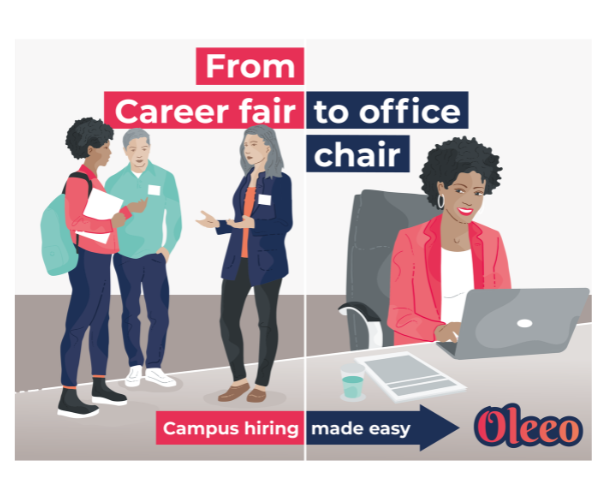Spotlight for Career Services Professionals
While interacting with employers at larger-scale recruiting events can be challenging for all students, staff of West Chester University’s Twardowski Career Development Center (TCDC) noticed that students with autism and other different abilities were less likely to attend career fairs and other networking events. Furthermore, staff found that students from this population who did attend recruiting events did not feel good about the way that they portrayed themselves to employers.
To address this, the TCDC partnered with the Dub-C Autism Program (D-CAP) to host a sensory-friendly recruiting event—the Connect and Learn Meet-up (CALM)—to bring together students and recruiters, and create a space for students to feel more comfortable and confident in their ability to interact with recruiters.
“As more employers begin offering hiring programs or adjusting their interview processes to allow individuals with autism and other disabilities to better present themselves, we realized that the way in which students were expected to connect with employers on campus has not evolved,” explains Jennifer Rossi Long, senior director of the TCDC.
“Our events center around students approaching employers, and we found that our students with disabilities struggled to excel in that environment because of this, and a number of other factors. As a result, our students with disabilities were not making the necessary connections with employers to learn about their opportunities.”
TCDC has a dedicated assistant director who is the liaison to the D-CAP program, and another dedicated assistant director who is the liaison to the office of services for students with disabilities.
“Both are charged with sharing career resources and delivering career development services that support the success of students within these identities,” Long says.
Rossi says the TCDC/D-CAP team made decisions about the event to ensure students had an environment where they felt comfortable and able to more confidently present their skills and experiences to employers, as well as engage in professional conversations. The design of the event includes:
- Students at tables grouped by industry with employers approaching the students at tables;
- TCDC and D-CAP staff acting as concierges for students who were not talking to employers, and making introductions to initiate the conversation;
- A designated quiet space for students in a separate room;
- A smaller-scale design with the event hosted in the TCDC, a space that is familiar to students; and
- Tables in different areas of the office to create more space.
During the first CALM, 22 students with different abilities practiced professional networking, discussed job and internship opportunities, and engaged in conversations around workplace culture and industry insights with recruiters from six employers.
The goals of CALM were that, through their participation, students with autism and different abilities would:
- Have professional conversations with at least two of the six employers in attendance.
- Agree that networking and connecting with employers was a valuable use of their time.
- Have a plan in place to follow up with at least one employer that they met.
- Feel more confident in their ability to interact with employers.
TCDC and D-CAP staff administered a survey of students as they were leaving the event.
“The survey had questions related to the established outcomes, as well as event satisfaction questions,” Long says.
“It included questions where students were asked to respond using a Likert scale, questions where students could select multiple answers, and two open-ended questions.”
The survey revealed the following outcomes:
- All 15 students who completed the survey spoke with at least two employers; four of these students reported that they interacted with four to six employers;
- 80% of students who completed the survey agreed that the event was a valuable use of their time, and 93% agreed that they would attend this event again in the future;
- 60% of students who completed the survey planned to follow up with at least one employer they met at the event; and
- 80% of students who completed the survey felt more confident in their ability to interact with employers following this event. No students disagreed, with 20% of respondents neither agreeing nor disagreeing that they felt more confident.
“Based on the outcomes, the survey results from students, and the verbal feedback from employers, we determined that this event will be held on an annual basis every fall semester, with the possibility that it will be offered every semester at some point in the future to better accommodate different recruiting cycles,” Long says.
Last spring, the TCDC/D-CAP team planned to host employers for monthly career skills sessions, which included resume writing, interviewing and elevator pitch creation and practice until CALM is hosted every semester.
“We are postponing the fall program to the spring,” Long explains.
“After careful consideration, we don't know that online is the best format to accomplish what we originally set out to do, which is having our students feel more comfortable, confident, and successful. We are looking forward to hosting this in late spring 2021! In the meantime, we are hosting career chats/workshops over Zoom with D-CAP students every two weeks on a number of career-related topics.”
West Chester University’s Twardowski Career Development Center and Dub-C Autism Program won the 2020 NACE Diversity, Equity, and Inclusion Excellence Award - College for its Connect and Learn Meet-up.






